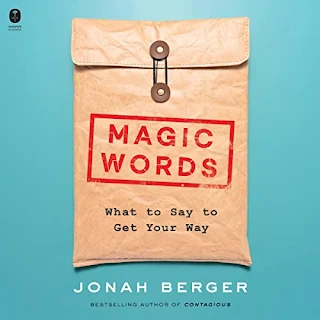Incorporating psychology; psychoanalysis; neuroscience; philosophy; ancient and modern literature; history; mythology; religious texts; poetry; current affairs; cases from his work as a clinical psychologist and stories of his life growing up,
12 Rules For Life - An Antidote to Chaos by Jordan B. Peterson is a difficult book to define.
Listening on audiobook to his distinctly Canadian voice, I was educated and inspired. I had some existing thoughts reaffirmed and challenged from a new viewpoint, and my mind opened to new ideas and concepts. Peterson is quick to explain:
"I'm not for a moment claiming, however, that I am entirely correct or complete in my thinking. Being is far more complicated than one person can know and I don't have the whole story. I'm simply offering the best I can manage." Overture
The best he can manage is a whole lot more than I have been managing and I enjoyed his perspectives immensely. You might assume the 12 rules of the title could be distilled into bullet points to save the reader some 15+ hours of reading time. Perhaps you're even hoping I'll do that here, but unfortunately you'd be wrong. Peterson's content isn't so easily summarised, Rule 12 is entitled Pet A Cat When You Encounter One on the Street for example.
Beginning with the behaviour of lobsters to introduce natural hierarchy and relate it back to humans was fascinating. The first two rules (Rule 1: Stand up Straight with Your Shoulders Back and Rule 2: Treat Yourself Like Someone You Are Responsible for Helping) were immediately inspiring and motivated me to take a chance on applying for something.
"You need to consider the future and think, what might my life look like if I were caring for myself properly? What career would challenge me and render me productive and helpful so that I could shoulder my share of the load and enjoy the consequences. What should I be doing when I have some freedom to improve my health, expand my knowledge and strengthen my body. You need to know where you are so you can start to chart your course." Rule 2 Treat Yourself Like Someone You Are Responsible for Helping
The author touches on all fields of study mentioned above, but the key quote I want to remember and come back to again because it inspired me to tackle a long neglected issue arrived in Rule 4: Compare Yourself to Who You Were Yesterday, Not to Who Someone Else is Today and it goes like this:
"Ask yourself: is there one thing that exists in disarray in your life or your situation that you could, and would, set straight? Could you, and would you, fix that one thing that announces itself humbly in need of repair? Could you do it now? Imagine that you are someone with whom you must negotiate. Imagine further that you are lazy, touchy, resentful and hard to get along with. With that attitude, it’s not going to be easy to get you moving. You might have to use a little charm and playfulness. “Excuse me,” you might say to yourself, without irony or sarcasm. “I’m trying to reduce some of the unnecessary suffering around here. I could use some help.” Keep the derision at bay. “I’m wondering if there is anything that you would be willing to do? I’d be very grateful for your service.” Ask honestly and with humility. That’s no simple matter." Rule 4: Compare Yourself to Who You Were Yesterday, Not to Who Someone Else is Today
As well as being educational, Peterson also makes me laugh. His story about taking the spoon back from his son and babysitting a neighbour's child had me chuckling. It's not often that I have two five star reading experiences back to back, but
12 Rules For Life - An Antidote to Chaos is the third five star book I read in a row last month.
Jordan B. Peterson is engaging and I always come away from reading his work having learned something new. He also practices what he preaches - Rule 8 is Tell the Truth or At Least Don't Lie - and causes a sensation online when discussing hot topics from time to time. Acknowledging his sometimes polarising nature, I recently enjoyed his in depth interview with Elon Musk which you can watch in full for free
here.
It's likely
12 Rules for Life - An Antidote to Chaos by Jordan B. Peterson is now one of my favourite self help books of all time and I'm still letting it percolate in my mind, but already have plans to read his next book
Beyond Order - 12 More Rules For Life.
The author's overall message is to encourage and inspire all of mankind to strive and improve themselves and continue to evolve. While plenty of people in the world don't want to do that, or believe they don't need to do that, I don't know anyone - Peterson included - who wouldn't benefit from doing precisely that.
Highly recommended!












































